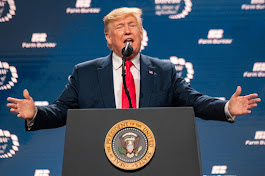“Who Really Brokered Peace? The Truth Behind India-Pakistan Ceasefire & Trump’s Bold Claims”
Tensions flared, bombs fell, and the world held its breath. Then, a ceasefire was announced. But who really brokered peace — and did Donald Trump have anything to do with it?
India and Pakistan, two nuclear-armed neighbors, made headlines again in May 2025 when they agreed to a ceasefire following a terrorist attack in Kashmir that claimed the lives of 26 civilians. The decision came after retaliatory airstrikes and rising tensions across the Line of Control (LoC).
🗓️ Quick Timeline of Events
May 2: Terrorist attack in Kashmir kills 26 civilians
IMAGE CREDIT - LICENSE DETAILS - May 3–5: Cross-border airstrikes and shelling
- May 6: India-Pakistan ceasefire officially announced
- May 7: Trump claims U.S. "brokered" the peace deal
- May 8 onward: LoC violations reported by both sides
📰 What Triggered the Ceasefire?
The Kashmir attack reignited border tensions and drew concern from the international community. After retaliatory operations and rising civilian risks, both sides agreed to a ceasefire aimed at halting violence and opening the door for diplomatic dialogue.
🗣️ Trump's Claim & India’s Firm Rebuttal
Shortly after the ceasefire, U.S. President Donald Trump publicly claimed credit, stating
“The U.S. played a vital role in facilitating peace between India and Pakistan.”
IMAGE CREDIT - rawpixel.com/license right
However, Indian officials quickly rejected this claim, emphasizing that:
“This was a mutual decision made between the two countries.”
– Ministry of External Affairs, India
India made it clear that no third-party mediation occurred and that peace talks were strictly bilateral.
🧠 Expert Reaction: Criticism & Concerns
Former Pentagon official Michael Rubin warned that Trump’s boasting could harm U.S. credibility and erode strategic trust with both India and Pakistan. He added that such diplomacy could cost the U.S. billions in future defense and trade deals.
The U.S. State Department later issued a clarification, distancing itself from Trump’s remarks and reiterating support for regional peace through direct dialogue.
🔥 Ceasefire Violations: A Fragile Peace
Despite the ceasefire, tensions remain high, and LoC violations were reported within days:
- 🇮🇳 India accused Pakistan of attempting to push militants across the border.
- 🇵🇰 Pakistan alleged unprovoked firing by Indian troops in Poonch and Rajouri sectors.
These incidents underscore the fragility of the truce and the importance of ongoing vigilance and diplomacy.
🤝 Why the Ceasefire Matters
Even with minor violations, the ceasefire has largely held — offering a rare diplomatic window. Stability at the border is crucial for:
- Preventing large-scale conflict
- Securing lives of border residents
- Sustaining economic recovery
- Advancing regional cooperation
📌 Final Thoughts
The 2025 India-Pakistan ceasefire is a reminder of how quickly peace can be tested, and how diplomacy must be handled with care — especially by global powers. While the U.S. can support stability, true peace in South Asia will always rely on direct, honest engagement between India and Pakistan.
💬 Have Your Say!
What’s your take on external involvement in regional conflicts?
Do you think world leaders like Trump help or hinder peace efforts?
➡️ Leave a comment below — we feature the best replies in upcoming posts!
➡️ If you found this post insightful, share it with someone who follows South Asia’s geopolitics.


Comments
Post a Comment